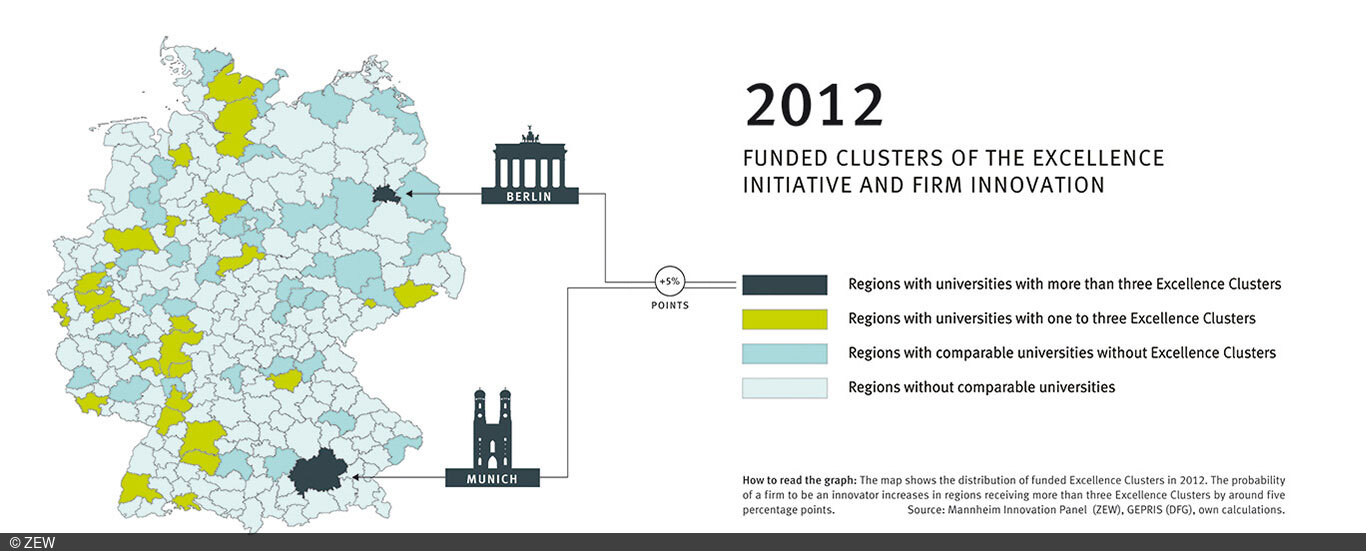More Public University Funding – More Innovation in Companies?
ResearchZEW Study: How did public university funding of the German Excellence Initiative influence innovation in local companies?
In 2006, the German government decided to strengthen top-level research at German universities in a new way within the framework of the Excellence Initiative. The three lines of funding Clusters of Excellence, Graduate Schools and Future Concepts have lastingly revitalised university research. A recent study by ZEW Mannheim analyses how the Excellence Initiative has benefited innovation in private companies. The study shows that of the three funding lines, Clusters of Excellence are so far the only programme to impact innovation activity in local companies – under certain conditions.
Funding one additional excellence cluster at a German university increases the chance that a company located in the same labour market region will implement innovations by up to 0.9 percentage points. “However, this positive effect can only be observed in labour market regions in which more than three excellence clusters are funded at universities,” says Dr. Bastian Krieger, researcher at the ZEW Research Unit “Economics of Innovation and Industrial Dynamics”.
Innovativeness of local companies increases - but only with adequate funding
Funding fewer than three clusters has no statistically significant impact on innovation in local companies, nor does the promotion of Graduate Schools or Future Concepts. Thus, the results of the ZEW study demonstrate that one category of the Excellence Initiative’s university funding has positive effects on the innovation capacity of local businesses. Nevertheless, the results indicate that substantial funding is required to boost innovation in local business through this programme.
Excellence strategy a good approach to funding research
The Excellence Initiative focused on strengthening research at German universities and to advance academic performance. Still, the positive impact one of its funding lines has on innovation in local companies is a welcome side effect. “It is handy that the Excellence Strategy – which was passed in 2016 to succeed the Excellence Initiative – prioritises funding clusters of excellence,” states Dr. Bastian Krieger. The potential impact the other two funding lines might have on the national level or its long-term effects on the private sector are yet to be analysed, as these effects are not included in the ZEW study.
The ZEW study is based on data from the Mannheim Innovation Panel (MIP), an annual representative survey of innovation activities in the German economy. The MIP was supplemented by the GEPRIS database, which provides information on funding by the German Research Foundation (DFG). The study considers data from over 26,000 companies between 2000 and 2016.
The "Excellence Initiative for the promotion of science and research at German Universities” initiated by the federal and state governments marked a change in the university funding in Germany. The existing egalitarian funding system was adapted to focus on establishing internationally leading universities. To achieve this goal, the initiative awarded 4.6 billion euros to German universities in a competition between 2006 and 2017. In 2016, the Excellence Initiative was replaced by the Excellence Strategy, a similar programme with a stronger focus on funding clusters of excellence.

